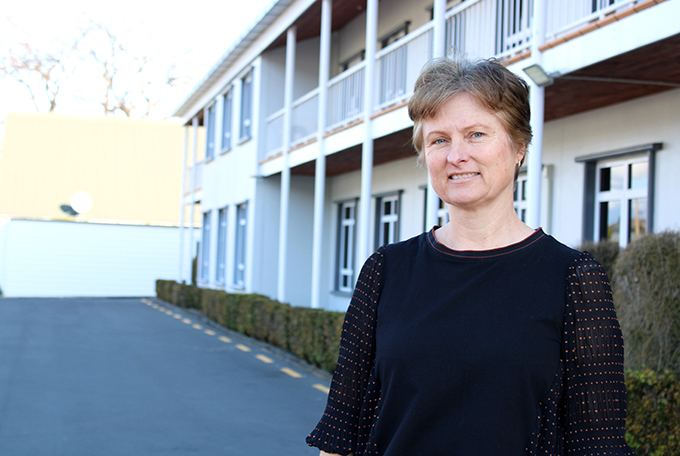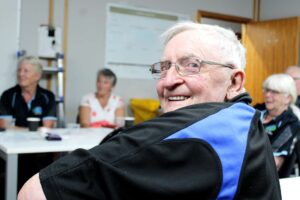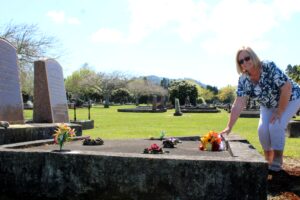The culture of Thames-Coromandel District Council for the next three years will be set by those elected by the public this October, says its new chief executive.
Aileen Lawrie started in the top job at the council in August. She said it was the councillors, who will be chosen by voters in this year’s local body elections, who had the important task of creating the culture and tone of the organisation.
“However they come together as a group will determine how that culture flows on down through the organisation. It’s the key thing, actually, for a CE,” she said.
Ms Lawrie moved to the district after spending 12 years as chief executive of Ōpōtiki District Council. Her experience in local government is vast: before Ōpōtiki, she was employed by Bay of Plenty Regional Council and Environment Canterbury, and said a common theme in all of her employment experiences was coastal planning. It was the same theme that attracted her to Thames-Coromandel.
“Where I came from, there wasn’t a lot of resource in the system. I’ve come here and I’ve found there’s resource, there’s people, the community is amazing, and there’s just more of everything here.”
She said the Kōpū Marine Development was an exciting project – and before she took on the role of chief executive, she had dredged out geological maps and learned about the history of the Peninsula.
When asked if relationship building between council and the public was important to her, she told The Profile it was.
“The thing about local government is it’s really complex. People think about ‘the council’ as a single business, but it sort of isn’t,” she said.
“Depending how you want to slice and dice it, we’re probably about 40 different businesses all glued together, and I think we administer something like 123 acts of Parliament across our business, which all have different drivers and objectives and skill sets.
“That’s what makes it so difficult for the public, because that’s not obvious from the outside. They come in and interact with one of those businesses, and sometimes it can be at odds with other parts of the business, and the role of our management team and the organisation is to try to make that cohesive, which can be challenging.”
Within the past three years, Thames-Coromandel District Council spent more than $100,000 on a High Court case for its refusal to sign a national climate change declaration. It was recently called “a sham” by a member of the public for its decision to spend $221,069 on land in Mary St.
When asked about transparency within the organisation, Ms Lawrie said there were rules councils needed to follow.
“When you go back and look at the 40 businesses we make up, some of them have an absolute right to not be in the public arena. There are other things we do that absolutely should be in the public arena, and there’s quite a challenge getting it right across those 40,” she explained.
Ms Lawrie said the CEO was responsible for the council’s agendas right up until the point they were in the hands of the elected members. Chief executives, she said, would always err on the side of caution when it came to public excluded items.
“My approach will be to play by the rules that the various legislations set for us, and they are not always easy,” she said.
Outside of the political realm, Ms Lawrie has a musical background. In fact, her first leadership role was as the principal cornet player of the Marlborough College boy’s brass band.
She has played in brass bands throughout New Zealand, was in the Air Force band, and in recent years, has played The Last Post at Anzac Day events.
One month into the role, she had “preliminary” goals for the rest of the year.
“We have to get a mayor elected, and an elected membership pool together, and the period of time through October to December is going to be really, really important,” she said. “One, for me to pull together a cohesive team, and secondly, to start articulating visions for the future for Thames-Coromandel as a district.”





